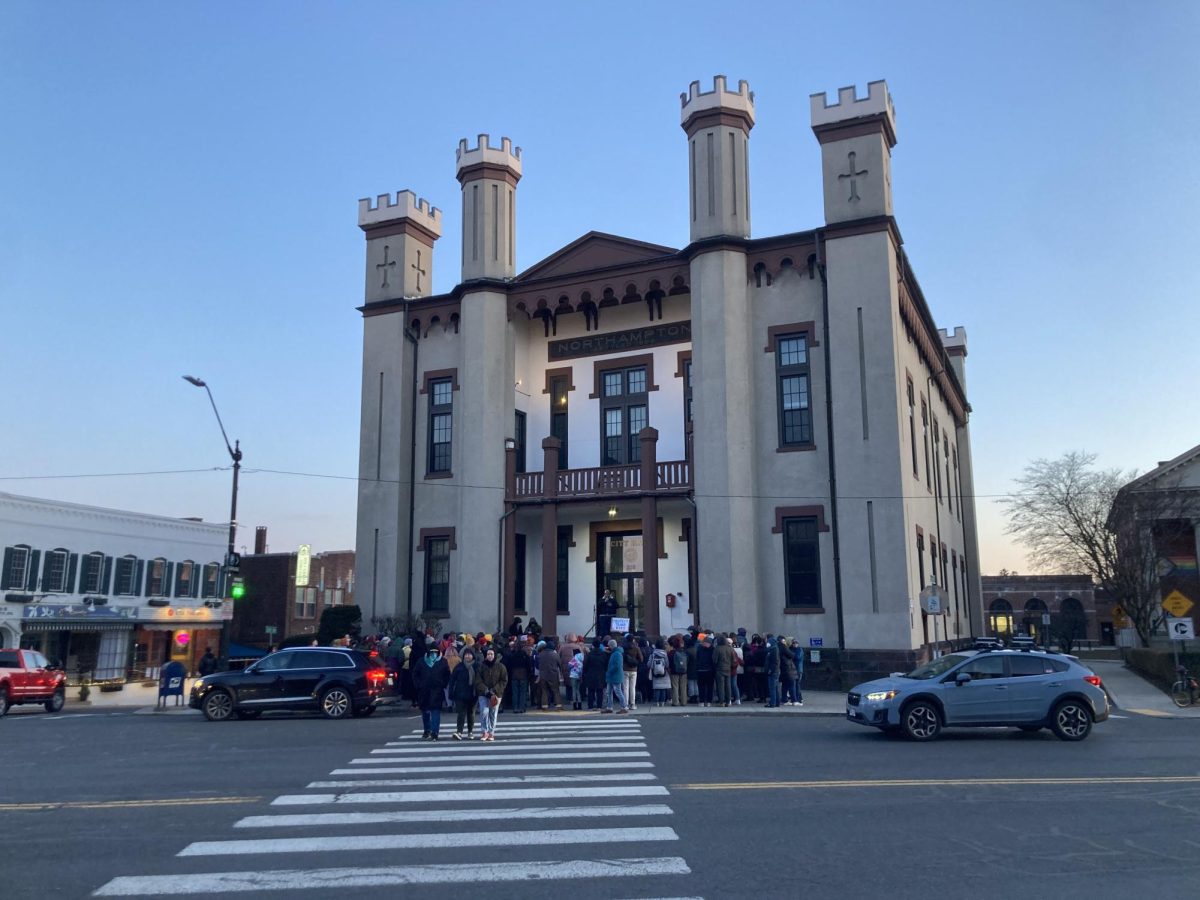
Zaynab El Bernoussi spoke to a crowd of around 15 people at Smith College on Tuesday to discuss the meaning and history behind the concept of ‘dignity,’ within the context of the Egyptian revolution.
El Bernoussi is a visiting scholar at the Lewis Global Studies Center and the Department of Government at Smith College. She is also an assistant professor of international studies at the School of Humanities and Social Sciences at Al Akhawayn University in Morocco.
She began her lecture by explaining that dignity – ‘Karama’ in Arabic – was one of the main slogans chanted in the Arab Spring uprisings in 2011. According to El Bernoussi, dignity is a vague concept that has a very individual meaning. It can be used to describe identity, human rights and faith.
Her research demonstrated this notion through the difference usage of the word ‘dignity’ among different Arab individuals. Some see it as a description of their faith, others see it as an indication of their faith, while others see it as a concept of human rights. That is why the word is often used in chants.
“This inexistent definition [of Karama] facilitates politicization and a catch all concept of solidarity without consensus,” El Bernoussi said.
She continued on to explain the main motivation behind her research: to investigate the different understandings of the term ‘dignity’ in the specific context of Egypt during the 2011 Arab Spring protests. After conducting many interviews with participants in the protests, she concluded that graffiti, novels, songs, slogans, cartoons and films were all used as forms of art to express dignity or the lack thereof.
El Bernoussi ended her talk by analyzing her findings, stating that she was only looking at the word’s context instead of its definition.
“Dignition is an attention catcher. It screams I am here. It has the ability to signify many things to different people,” El Bernoussi said.
She also emphasized how important it is to know that the demands for the term were meant to tackle power of moral outrage and stand up to injustice. According to El Bernoussi, the word itself calls for empowerment and development. She says that looking at Egypt was helpful in understanding the rest of the Arab world.
She added that in the future she intends on studying other understandings of the term ‘dignity’ through a global survey focusing on the 2014 Constitution of Tunisia.
Chair of the government department at Smith College, Gregory White, felt that the talk was fascinating and provocative.
“I sat there thinking about different aspects of dignity both within the region and also more universal, whether it be Europe or the United states,” White said.
Janie Vanpee, professor of French studies and faculty director of the Lewis Global Studies Center, tied the concept back to current events in the United States.
“We can look at the United States and say where has our dignity [has] gone given our political situation. Is it even a concept or not,” Vanpee asked. “When are we going to feel like we’ve reached a certain level of indignity because of what’s happening in our political system?”
Afnan Nehala can be reached at [email protected].


















